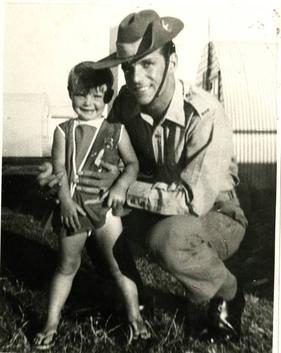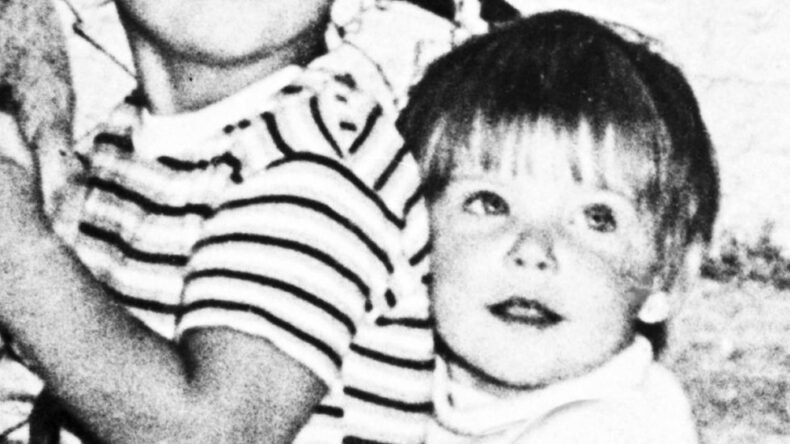The family of a British child who went missing in Australia over five decades ago has written a letter to the New South Wales attorney general, urging a re-examination of the case. Cheryl Grimmer, a three-year-old girl, disappeared from a beach near Wollongong in 1970. Despite an extensive police search, no trace of Cheryl has ever been found. A 2011 inquest concluded that she had died, but the case against a man who allegedly admitted to her abduction and murder collapsed in 2019 due to procedural issues.
The individual who was accused of the crime, whose identity remains undisclosed for legal reasons, pleaded not guilty. In 2019, a Supreme Court judge ruled that his alleged confession, made as a teenager, was obtained during a police interview that did not adhere to guidelines for questioning minors, thus rendering it inadmissible as evidence. The collapse of the trial was described by the then-Attorney General Mark Speakman as the “end of the road” for one of Australia’s most prominent mysteries.

However, despite the setback, Australian authorities continued their investigation. In 2020, the government of New South Wales increased the reward for information regarding Cheryl Grimmer’s case to A$1 million. The Grimmer family has now written to the current attorney general, Michael Daley, requesting a reassessment of the judge’s decision. They argue that the judge’s ruling did not consider the impact on the victim, referring to the omission of Cheryl’s name from the judgment as deeply disturbing. The family believes that this omission contradicts Australia’s obligations under human rights instruments.
The family highlights that details mentioned in the confession were corroborated during a reinvestigation conducted in 2016-17. Their letter to Attorney General Michael Daley calls for permission to file an application with the NSW Supreme Court for a fresh inquest into Cheryl’s disappearance. Additionally, they request the lifting of media restrictions that prevent the publication of the previous suspect’s name. They believe that this could encourage other potential witnesses to come forward with relevant information.
The Grimmer family’s ordeal began when they relocated to Australia from the UK shortly before Cheryl vanished. On that fateful day, Cheryl was last seen near the beach showers, where she had spent the afternoon with her mother and two older brothers. Witnesses reported observing an unidentified male carrying a child wrapped in a towel towards the beach car park.
The family’s unwavering determination to seek justice for Cheryl is evident in their plea to the attorney general. Their request for a fresh inquest is rooted in their belief that crucial factors were
overlooked in the previous trial. The acknowledgement of Cheryl as the victim and the inclusion of her name in the judgment are crucial elements they feel were disregarded. They argue that this exclusion undermines Australia’s commitment to upholding human rights.
The significance of the alleged confession cannot be ignored, particularly when it was reportedly substantiated during a reinvestigation. These developments present an opportunity to reevaluate the case with a fresh perspective, potentially uncovering new leads or evidence that could shed light on Cheryl’s disappearance. By lifting the restrictions on publishing the previous suspect’s name, the family hopes to encourage other witnesses or individuals with relevant information to come forward, allowing for a more comprehensive investigation.
The Grimmer family’s plea resonates with their desire to prevent other families from experiencing the pain and anguish they have endured for over five decades. Their determination to uncover the truth is a testament to their unwavering love for Cheryl and their commitment to justice. As they reach out to the attorney general, they demonstrate their firm belief in the necessity of a renewed investigation and their hope for a resolution that will bring closure to their long-standing agony.
In conclusion, the Grimmer family’s letter to the New South Wales attorney general reflects their unyielding pursuit of justice for their missing loved one, Cheryl Grimmer. The disappearance of Cheryl has haunted the family for over half a century, and they believe that a fresh examination of the case is warranted.
By addressing concerns regarding the previous trial, the family seeks to ensure that Cheryl is recognized as the victim and that her name is duly included in any future judgments. They hope that lifting media restrictions will encourage potential witnesses to come forward and provide vital information. The Grimmer family’s request highlights their enduring determination to find answers and prevent other families from enduring a similar ordeal.













